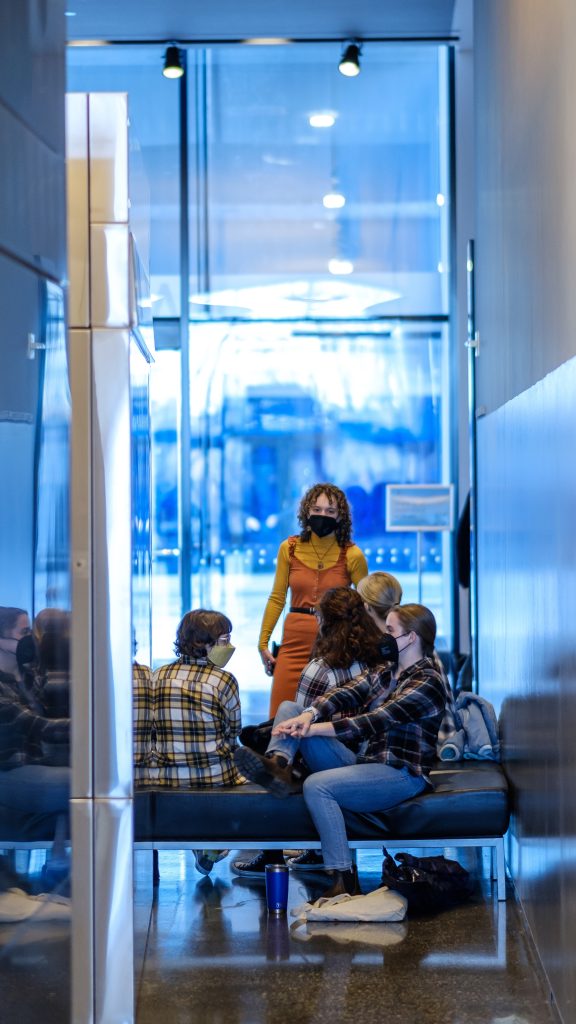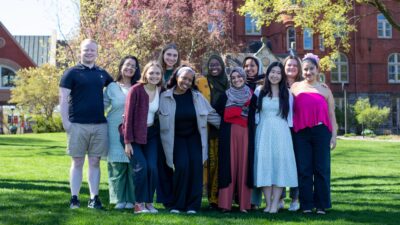
Professor Penelope Geng shares a snapshot of her English course, Shakespeare.
“You will learn to curse expertly in early modern English. Joking! Much of the learning in the class centers on language—thinking about how language forges community, and how it divides it, how it consoles, how it wounds.”
Today, Shakespeare is venerated as the “Bard” and “wonder of the stage.” His peers were more divided. Early in his career, he was accused of plagiarism (“there is an upstart crow, beautified with our feathers,” fumed Robert Greene) and, after achieving star-status, he was said to be lazy in his editing (“I would he had blotted a thousand [lines],” mused Ben Jonson). How did the imagination and language of this upstart crow shock and delight audiences then—and why do his plays continue to offer entertainment, consolation, and debate today? In this course, we study some of Shakespeare’s most enduring work.
Why take this class?
Reading a Shakespeare play by oneself has its own rewards! But for those who enjoy reading plays with others, analyzing Shakespearean rhetoric and poetic devices, studying a play’s historical context through primary documents, theorizing a scene’s staging possibilities, watching multiple recordings of productions, participating in table readings, and performing scenes using the barest of props (the things you carry in your backpack)…This class is for you.

Fun fact
Whenever possible, we see a live, professional performance of a Shakespeare play. This semester we are seeing The Tempest at the Guthrie Theater. Previous outings have included The Two Gentlemen of Verona at the Jungle Theater, Hamlet at Park Square Theatre, and Henry IV, Part 1 at the Loft/Open Book performed by Ten Thousand Things. The Twin Cities has a great theater scene, and many companies experiment with Shakespearean performance.
Building community in class
We build community through table readings. Plays are meant to be performed and sonnets read aloud. For every class, I ask students to read a part or lines from a poem. Hearing a mix of voices in the classroom space builds a sense of community. It’s also a fantastic way to do close reading. Since this is an English class, our performances will be quite amateur (I encourage those who love performance to take classes in Theater and Dance!). The stakes are low and we aim to have a good time.
What new knowledge will you take away from this course?
You will learn to curse expertly in early modern English. Joking! Much of the learning in the class centers on language—thinking about how language forges community, and how it divides it, how it consoles, how it wounds. We look up both “easy” and “hard” words using the Oxford English Dictionary to glean their secondary and tertiary meanings. We watch films to get a sense of how an actor transforms the text using a combination of gesture and tone.
The be-all and end-all…among others.
Scholars estimate that Shakespeare introduced (or popularized) roughly 1,700 new English words. Some of my favorite ones come from Macbeth, a text that features prominently in my book Communal Justice in Shakespeare’s England: “unsex,” “compunctious,” and “be-all and end-all.” As a former ESL learner, I’ve always enjoyed memorizing vocabulary words, so it’s a genuine pleasure to study early modern English with my students.
Outside of class you will find me…
Playing online Dominion. No one asked, but I am ranked 4916 in the world in 3-4 player games.
March 30 2022
Back to top




